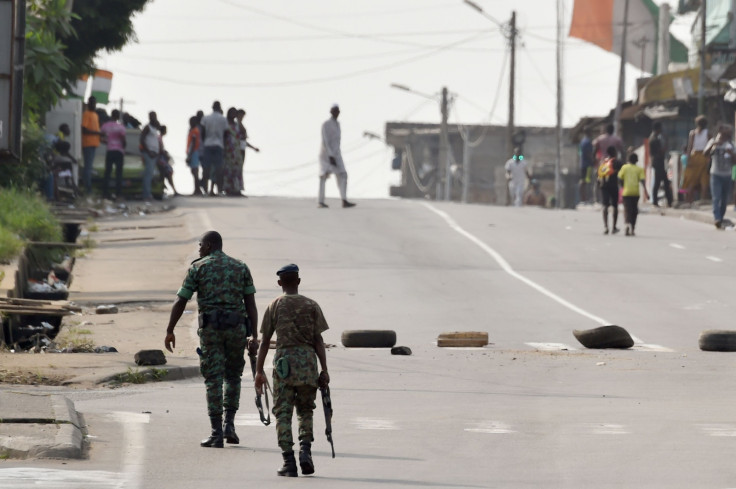Ivory Coast: Uneasy calm descends after new wave of mutiny rocks the country
A week after army mutinied over pay, gendarmes are now demanding unpaid bonuses.

A week after Ivory Coast was rocked by a wave of army mutiny over pay, new mutinies broke out on Tuesday (17 January) in a number of cities including Bouaké and the political capital Yamoussoukro, where two people died in the shooting.
On 6 January, mutineers seized weapons from two police stations and fired rocket launchers in the country's second city, Bouaké, 350km north of the commercial capital Abidjan, before the unrest spread to several other towns.
Former Forces Nouvelles rebels integrated into the army demanded to be paid financial settlements − so-called "ecomog" − packages that they claim the government agreed with them as part of a deal to end the country's civil war, but were never delivered.
President Alassane Ouattara had reassured Ivorians that "all is now back to normal" after he had taken into account the soldiers' pay demands. More than 8,400 former rebels who were later integrated in the army were awarded 12m CFA francs each (£15, 854, $19,536)
However, the epicentre of the mutinies on 17 January moved to Yamoussoukro, with gendarmes – paramilitary police officers – who are not paid "ecomog" now demanding unpaid premiums.
RFI reports that army officers, who had mutinied, clashed with the gendarmes in Yamoussoukro, before taking control of two police stations, the gendarmerie and the prefecture of police before heading for the Republican guard.
Gun fights killed at least two and injured several, RFI said quoting a witness.
A delegation made up of religious leaders and local authorities and led by the governor of Yamoussoukro met these new mutineers in Zambakro, the Ivorian Armed Forces technical school. According to reports, an uneasy calm returned to the city after the mutineers agreed to lay down their weapons as they awaited for a government envoy to meet them.
Clashes also took place in Bouaké on 17 January. Heavy weapon fire was heard in the morning in the city center. The gendarmes also demonstrated in the towns of Dimbokro, Man and Daloa, and at the Abobo camp in Abidjan in the evening, but less violently.
They fired warning shots and blocked major roads. It is not possible to establish the number of victims accurately at this stage.
© Copyright IBTimes 2025. All rights reserved.






















